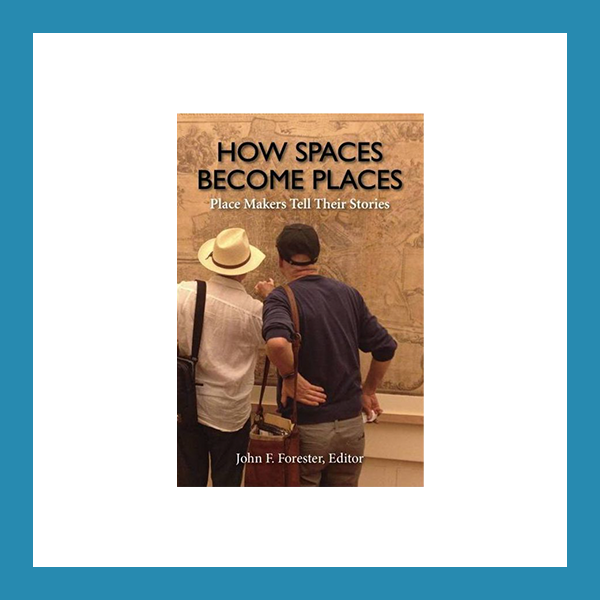By Steven Elliot-Gower, Yohannes Woldemariam
Abstract
These three TED Talks address global challenges, and how we (the world’s seven billion inhabitants), our national governments, and the international community can make the world a better, safer, more prosperous place. In this review, we will summarize each talk, offer a brief critique, and then synthesize some of the most salient points of each. We will review the talks in chronological order.
The “Bottom Billion” are the poorest of the world’s poor—those living on less than $1.25 a day. Economist Paul Collier has addressed their plight in his award-winning book, The Bottom Billion. In this TED Talk, Collier argues “a billion people have been stuck living in economies and have been stagnant for 40 years, and hence diverging from the rest of mankind.” He says that we can and should help alleviate their suffering through an alliance of compassion and enlightened self-interest; compassion because we are looking at a human tragedy,and enlightened self-interest because the combination of economic divergence and global social integration “will build a nightmare for our children.”Collier argues that this is doable because we’ve done it before, and he points to U.S. efforts in the late 1940s and 1950s to rebuild Western Europe to prevent it from falling into the Soviet bloc.There were four components of post-war U.S. assistance: aid, trade, security, and governments. First, there was the 1948 Marshall Plan—a massive injection of foreign aid. Second, the United States reversed its pre-war protectionist trade policies,opening up its markets to Western Europe and institutionalizing trade liberalization. Third, the United States reversed its security policy, shifting from pre-war isolation to a massive military presence in Western Europe and other parts of the world. Fourth, the United State store up its “Eleventh Commandment”—national sovereignty—and pursued an aggressive internationalist policy, becoming instrumental in the founding of the United Nations (UN), the Organization for Economic Cooperation and Development (OECD), and the International Monetary Fund (IMF), and, according to Collier, also encouraging the creation of the European Community.Having laid out the challenge and the historical precedent, Collier focuses on the role of current-day governments and“mutual systems of support for governments”—specifically \on“one idea in how we could do something to strengthen governance.” This one idea is based on the opportunity and the “genuine basis of optimism” created by commodity booms; “commodity booms [that] are pumping unprecedented amounts of money into many, though not all[emphases added], of the countries of the bottom billion.” Collier points to high commodity prices (the global recession had yet to hit when he gave this talk), and new discoveries of oil and other commodities in sub-Saharan Africa,a trend that has continued since 2008. Heal so points to his own research on the relationship between higher commodity export prices and the growth of commodity-exporting countries that shows how short-term, commodity-driven increases in Gross Domestic Product (GDP)are followed by economic crashes. The cause is not economic, but it is political. It is about what Collier calls the “level of governance.” If you have “good enough governance,” you don’t have a resource boom. GDP goes up in the short term and in the long term. But for countries “below a threshold of governance,” countries “with bad governance historically,” it’s boom and bust or, in Collier’s words “hunky dory” and “humpty dumpty.”The problem is one of political structure. Many developing countries have only the basics of democracy. They have electoral competitions that determine how politicians acquire power, but they lack the checks and balances that restrain the use of that power by those in political office. In commodity-rich developing countries,elected and appointed officials can negotiate resource extraction rights deals in secret that benefit them and foreign companies but not their countries.Collier asks, “How can we help improve governance and introduce checks and balances?” He suggests the voluntary introduction of the Extractive Industries Transparency Initiative, part of which involves so-called “verified auctions”—open and transparent auctions that reveal the market value of (in this instance)resource extraction rights, identify the winning bid, and publicize the revenues that accrue to the government, the country, and its people.Of course, it’s not so easy. The odds are stacked against the reformers in these commodity-rich, governance-poor countries. Here Collier exhorts us, rather plaintively,to become informed citizens because“unless we have an informed society, what politicians do, especially in relation to Africa, is gestures: things that looks good but don’t work.”Nye, Joseph. (2010, July). Global power shifts[Video file]. Retrieved fromhttp://www.ted.com/talks/joseph_nye_on_global_power_shifts In “Global Power Shifts,” political scientist Joseph Nye discusses two types of power shift taking place in the 21st century: power transition and power diffusion. Power transition is the shift of power among states,and power diffusion is the spread of power from states to non-state actors. Nye addresses these two types of global power shifts, exploring how they interact and examining the implications of this interaction. Along the way he distinguishes between hard and soft power, and introduces the concepts of “smart power”and “global public goods.”The power transition currently taking place is the rise or rather the “return” of Asia; the shift in power from West to East and, specifically, from the United States to China. While Nye criticizes linear and one-dimensional projections of this power transition based on GDP and quibbles about the transitional timetable, he believes that this power transition is happening and that the challenge is determining how we in the West manage the transition.Power diffusion—the spread of power from states to non-state actors—is also underway, but it does not mean the end of the state as some have predicted. For Nye, the state still matters even though the world stage is crowded with new non-state actors; some, like Oxfam (Nye was giving his talk from Oxford where Oxfam was born) are good, and some, like Al Qaeda, are bad. Nye links power transition and power diffusion by looking at the resultant power distribution on a metaphorical three-dimensional chessboard. On the top military board, the United States is, according to Nye, the only superpower. On the middle economic board, power is divided among a number of balancers: the United States, Europe, China, and Japan. The bottom board consists of other transnational issues—climate change, the drug trade, financial flows, pandemics—“that cross borders outside the control of governments.” Here power is chaotically distributed, nobody’s in charge, and the only way to solve problems is “through cooperation, through working together.”This cooperation, says Nye, means getting away from the idea that the exercise of power is always zero-sum where one country’s gain is another’s loss, and moving towards the exercise of power as positive-sum—a win-win situation. This, in turn,means combining hard power and soft power into strategies called smart power, and exercising that power in networks of state and non-state actors to produce and work on “global public goods,”—things that benefit all of us. Anholt,Simon. (2014, July). Which country does the most good for the world[Video file]. Retrieved from http://www.ted.com/talks/simon_anholt_which_country_does_the_most_good_for_the_worldPointing to the success of the Millennium Development Goals as an example of the possibilities of serious international cooperation, Simon Anholt, an independent public policy advisor, asks why we can’t make the same sort of advances on the long list of other global challenges that we face—climate change, human rights abuses, demographic problems, terrorism, pandemics, narco-trafficking, human slavery, and species loss. Anholt asks, “Why are we so slow at achieving these advances? What’s the reason for it?”The problem, according to Anholt,is that “we’re still organized as a species in the same way that we were organized 200 or 300 years ago.” We’re still organized in nation-states whose governments think and behave as if their country was “an island that existed quite happily, independently of all the others…”Why do our leaders persist in looking inwards? Why don’t they do a better job of working together? Anholt offers three explanations to these complex questions.First, we ask our governments to look inwards and deliver to the people in their countries things like prosperity, growth, competitiveness, transparency, and justice. (Of course, we might also add security.) We really don’t ask them to consider global problems. Second, we and our governments are “cultural psychopaths.” We don’t really empathize with people who are different from us—people who eat, pray, dress, or talk differently from us. Third, governments believe that the domestic agenda and the international agenda are incompatible.Given all of this—and our inherent aversion to change—how can politicians, businesses, and general populations “start to think a little more outwardly, to think in the big picture?” What self-interest might be identified to get us to change? Anholt points out that our governments are very keen to know how what the rest of the world thinks of them because they depend on their reputations in order to survive and prosper. For countries with positive images“everything is easy and cheap.” They get more tourists, they get more investors, and they sell their products more expensively(think German cars and Swiss watches). On the other hand, countries with weak or negative images find that “everything is difficult and everything is expensive.” So having a good image is in a country’s best self-interest.It helps their businesses make money and their governments deliver on their political promises.What does it mean to have a good image in the world? It’s not about wealth, power, success, or technology. It’s about contributing something to the world in which we live, making the world safer, better, richer, or fairer (and we might add cleaner).So it’s about being “good”—good for a country and good for the world. Anholt mentions in passing that being good involves collaboration.The top ten countries on Anholt’s Good Country Index are all, with the exception of New Zealand, West European. They are all rich, which depresses Anholt, and he has to dig deep into the index, down into the 30s, before he can find a developing country—Kenya.So what is the Good Country Index there for? Anholt tells us that he’s tired of hearing about competitive countries, prosperous countries, fast-growing countries, and even happy countries because “in the end that’s still selfish”. He wants to introduce the word “good” into the discourse. He wants us to think about how good our countries and our businesses are and to use the concept of good to “change the way our politicians and our companies behave, and in doing so, we can change the world.”Critique and Synthesis These three fascinating, though sometimes imperfect, TED Talks make clear that we live in interesting times. Economic and political power is shifting around the world and to increasingly important non-state actors.Globalization is creating prosperity for some in some countries but is also increasing the income and wealth gap between and within countries and bringing about a host of complicated transnational problems.The result is that a billion people in the world are stuck with inefficient and corrupt governments, and remain mired in poverty.What do these TED Talks tell us about the challenges of governance in the 21st century?First, the global challenges we face are huge and beyond the capacity of any one government, even a superpower, to solve.Unlike the immediate post-Second World War era there is no global hegemon.The United States might dominate Nye’s military security chessboard, but it still requires the help of others in, for example, fighting global terrorism.Second, because states can’t go it alone (even though Anholt suggests that they sometimes think they can), they must cooperate and collaborate with each other.This is explicit in Nye’s talk and implicit in Collier’s and Anholt’s talks.It means, of course, that the United States cannot by itself deliver some Marshall Plan-scale rescue package to the bottom billion.Third, international cooperation must also include the involvement, participation, and sometimes reliance on increasingly important non-state actors. The Extractive Industries Transparency Initiative that Collier talks about requires the participation of multinational corporations. Nye makes it clear that non-state actors must play constructive roles in the solving global challenges. He also makes clear that they sometimes play destructive roles.If the talk were given in 2014, Nye might have substituted “ISIS” for “al-Qaeda.”Fourth, international cooperation is hard. It’s hard because, as Anholt points out, we live in a world of sovereign states which tend to define their existence in terms of national interests, including national security.It’s hard because the issues are hard in all sorts of ways—politically and sometimes technically. It’s hard because of the power transition and diffusion challenges that Nye brings to our attention. It is difficult to see how Nye’s concept of soft power can be applied in the Middle East, eastern Ukraine, and the South China Sea where the forces of history, religion, and/or nationalism hold such tremendous sway.Each of the speakers recognizes the challenge of international cooperation, and all appeal, in one way or another, to self-interest. Collier appeals to a combination of compassion and“enlightened self-interest.” Nye sees the possibilities of international cooperation through positive-sum interactions and the identification, or even production, of global public goods. Anholt argues that the pursuit of goodness results in material blessings, never mind the common saying that no good deed goes unpunished.None of these three speakers questions the fundamental fairness of the international economic and political structure. All three share liberalism or neo-liberalism as their ideology. Things will be better if we can eradicate corruption, democratize, and cooperate within the existing international political economic structure, they argue. None of them seriously reflect on the effect of power in creating and perpetuating inequality. They see free trade as a mitigating factor. In this view, free trade helps avoid conflict and levels the economic playing field for all to prosper.The problem is that we really cannot meet the challenges of global governance until the fundamental, structural inequities that are driving inequality between the core and the periphery are addressed. Surely working together to remove these structural barriers to development would constitute a global public good and indeed what it means to be a “good” country.



